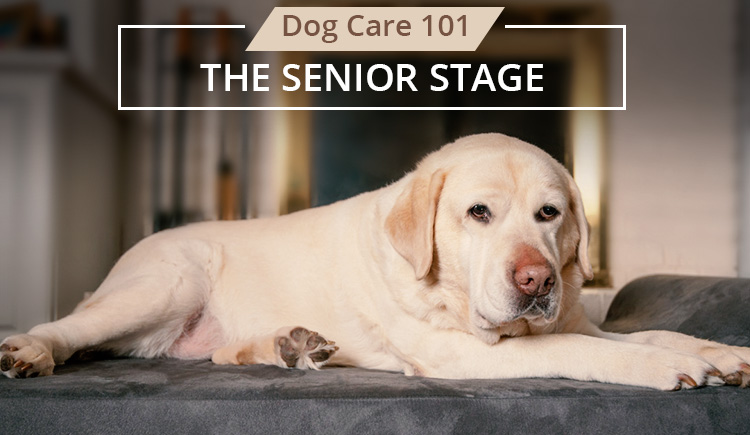If you’ve been following our segment, we had talked about ‘Dog Care 101: For New Dog Parents’ before moving on to ‘Dog Care 101: The Puppy Stage’ followed by ‘Dog Care 101: The Adult Stage’. Now we’ve entered senior hood, which unfortunately is the twilight part in the life of a dog. And like in all stages, there will be changes which you need to take note of while caring for your fur buddy.
Dog Care 101: Senior Stage
Normally and in most cases, the senior hood years begin between six and 10 years of age. But like we have stated before, this may vary based on various factors such as the breed of the dog, weight, and size, etc. Senior dogs require more care, love, and affection and as dog parents, it is essential you provide them that during their senior years.
So here’s what changing and what you need to do in order to provide the best care for your senior dog.
- Change in Appetite – More often than not, dogs will lose their appetite to eat when they step into senior hood. Not just that, they may even dislike the meal you normally feed them. Try feeding them something new and that too in lesser quantity.
- Less Play, More Sleep – A majority of dogs, who were once so energetic and playful, will slowly lose interest in playing. They will instead prefer to utilize their time in sleeping or sitting idle. There’s nothing much you can do as a pet parent here, but make sure there’s some movement so that severe joint problems can be prevented. Walking is one way of making sure your buddy dodges severe joint pain issues.
- Joint Issues Arising – Senior hood is the time when most problems start to creep in. Senior dogs, at this point in their lives, face a ton of problems which needs to be taken care of. Issues like arthritis are the more likely problems your dog will face when he enters senior hood. Thus, make sure you have the necessary supplements with you. For joint issues, products like Seaflex, Joint Guard, and Arthrimed Powder help in relieving joint pain and stress in adult and senior dogs.
- Sense of Sight and Hearing – As dogs age, their once amazing sense of sight and smell will start to deteriorate. And that’s natural and a part and parcel of life. Eye and ear drops can be opted for if you suspect an infection. Normally, dogs do tend to fall prey to eye and ear problems during the later stages in life. Numerous eye and ear care supplies are available online, but consult your vet before purchasing any.
- Frequent Vet Visits – Lastly, older dogs are at a higher risk of getting infected with a host of problems. Thus, it becomes mandatory to increase the number of vet visits you make. For instance, if you happen to take your pal to the vet twice a month, double that up to four times a month.
Through out their lives, dogs bring you ample of joy. So continue to love and care them, and keep a track on their needs that keep changing. Doing this can go a long way in helping your fur buddy leading a paw some and healthy life.

